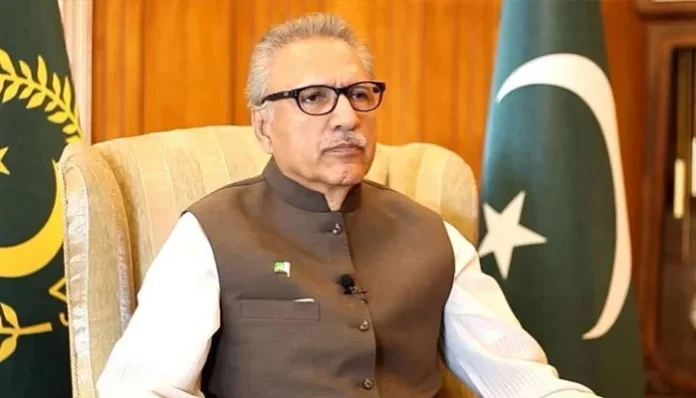KARACHI: President Alvi’s advice to the government to take parliament into confidence on the mini-budget and not sign an ordinance in this regard is unusual, say, economic analysts and taxation experts, who however differ on whether the times call for such an approach.
Business journalist Shahbaz Rana says: “The president has taken a different route [in not accepting to pass an ordinance] — a route that has probably not been taken before. During its tenure, the PTI had passed around 45-50 ordinances in various fields — including related to the economy. In fact, it ran its government through ordinances. Here the situation is different. The government wanted to take the shortest route to [get the mini-budget approved]. While it may be seen as a political move, the president has taken an approach that any democratic government should take: a parliamentary nod for revenue measures which at this moment will hurt the poor the most. The proposed measures are regressive in that most of them are in the form of indirect taxation. Yes, [the president’s] is an unusual move but in the longer term it may serve the democratic nature of government since any future presidents can say that new taxation measures should be introduced through parliamentary permanent legislation.”
But according to Dr Ikramul Haq, advocate Supreme Court and a tax specialist, “Under Article 89 [Power of president to promulgate ordinances]… the president does not have any power to create hurdles in matters of taxation proposals in money bills… I think Article 89 is very clear; if there is an emergency and we have to make a deal with the IMF and the houses of parliament are not in session, then this [ordinance] can be done. And parliament can approve it in 120 days and it becomes the law of the land, so I think the president shouldn’t really have any objection to the process.”
Explaining the legal process of the money bill, Barrister Reza Ali says: “Once parliament approves the bill, there is no option but for the president to give his assent. [It may be noted] that cabinet approval does not translate into parliamentary approval. Legislative power can only be exercised by parliament or if it’s not in session then the president. If the government has the requisite numbers, then they can sail it through as quickly as possible. If they don’t, then it’ll be delayed.”
On why the government would choose to go down the ordinance route instead of calling a session and passing a bill, Ali says it was probably “a matter of convenience”, adding that “the president cannot delay it at all if both house committees pass the bill.”
Dr Fahd Ali, economist and Dean FHSS at Information Technology University, explains the reasoning behind the proposed mini-budget: “The government is passing this mini-budget bec it is part of the prior actions that we have to take in order to secure our next IMF tranche”. He too feels that the reason the government will have thought of an ordinance was expediency: “It should technically go to parliament to pass these measures but it [probably feels] it has to do this in the shortest time possible — not just to get the money from the IMF but also from other lending institutions and bilateral lending partners….The fact that the government is doing this in such a haphazard and ridiculous manner is something it only has itself to blame for. The finance minister spent the past four months trying to stabilise the dollar, something he could never have done…instead he could have taken a number of steps and implemented these steps gradually. Now they have to do it at the earliest — they were supposed to do all this yesterday instead of today or tomorrow.”
Echoing the general sentiment that money bills should remain within the power of parliament — and not be hurried through via ordinances, macroeconomist Ammar Habib Khan says, “It is important that a precedent is set that a money bill is passed by parliament, rather than being steamrolled through an ordinance. Steamrolling a money bill creates diffusion of responsibility, as public representatives who are answerable to their constituents can deem ignorance, and helplessness.”














